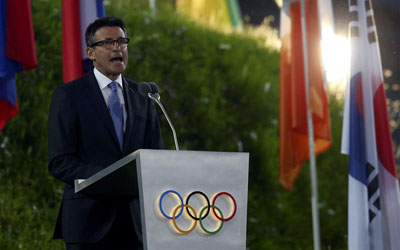Landmark Deal Allows Olympic 2012 Suppliers to Promote their Involvement
January 28, 2013
Suppliers to the London 2012 Olympic and Paralympic Games will be able to promote their involvement in the Games, ambulance after a landmark deal was reached with the Government, British Olympic Association (BOA) and the International Olympic Committee (IOC).
It is the first deal of its kind and will benefit the companies who helped build the Park, venues and provided goods and services for the Games.
Companies were previously banned from associating themselves with the Olympics, but the move is designed to provide a boost to the country’s economy, by helping firms land contracts and deals on the back of their London 2012 involvement.
The Government has committed £2m ($3.1m) to the BOA to allow them to establish and operate the ‘supplier recognition scheme.’ Businesses will need to apply for a free license from the BOA before they can promote their work.
Secretary of State for Culture, Media and Sport, Maria Miller said: “I am delighted that those companies that played such a crucial role in making London 2012 an incredible success can now be rightly recognised. By lifting these restrictions we will be able to maximise the economic benefits from the Games.
“Now we have removed the barrier, companies can capitalise on the role they played at home and abroad by really selling their involvement in one of the biggest and most successful projects this country has ever put on.”
British Olympic Association and LOCOG Chair, Lord Coe said: “The London 2012 Olympic and Paralympic Games provided Great Britain with an unprecedented opportunity to showcase the very best of our what our country has to offer – from our athletes and volunteers, to our history and culture, and of course, the expertise and innovation of British businesses.
“Thousands of British businesses supplied goods and services that were essential to the successful staging of the Games, and I am delighted that many of these companies will now have the opportunity to highlight and officially promote their involvement in the Games. This should be a catalyst in creating new business opportunities and further growth for these companies, and that is an important economic legacy of the Games.
“It is also important to recognise and thank the International Olympic Committee and the Department for Culture, Media and Sport for their support of this first-of-its-kind programme.”
Sir John Armitt, Chairman of the Olympic Delivery Authority had previously recommended the relaxation of the laws and expressed his delight at the new deal. He said: “Businesses in Britain can now really build on the huge amount they have already achieved. UK firms won 98 per cent of more than £6 billion worth of contracts to construct venues and infrastructure for the Games, helping their finances in a difficult economic climate, keeping workers in jobs, boosting skills and equipping firms to win lucrative contracts in the future, at home and abroad. This ground-breaking new scheme will let them make the most of London 2012 and their involvement.”
One company that will benefit from the scheme is construction firm Careys, a family-owned business based in North West London, that worked on London 2012 including projects such as landscaping the Olympic Park and laying the tennis courts at Eton Manor.
Careys Operations Director Jason Carey said: “Working on the Olympics projects has been a real privilege for both Careys as a company and for the individuals involved. The benefits of having worked on such an iconic project are endless, but probably the most unique and valuable practice the project engendered was collaborative working. Competitors, peers and the ODA all worked together to ensure best practice across every site, creating new benchmarks for the industry.”
The supplier recognition scheme license will cover businesses that had contracts directly with LOCOG or the ODA. It will also cover businesses which had contracts with LOCOG or ODA contractors and subcontractors, along with any firm that can demonstrate that they provided goods and services, required for the delivery of the Games.


